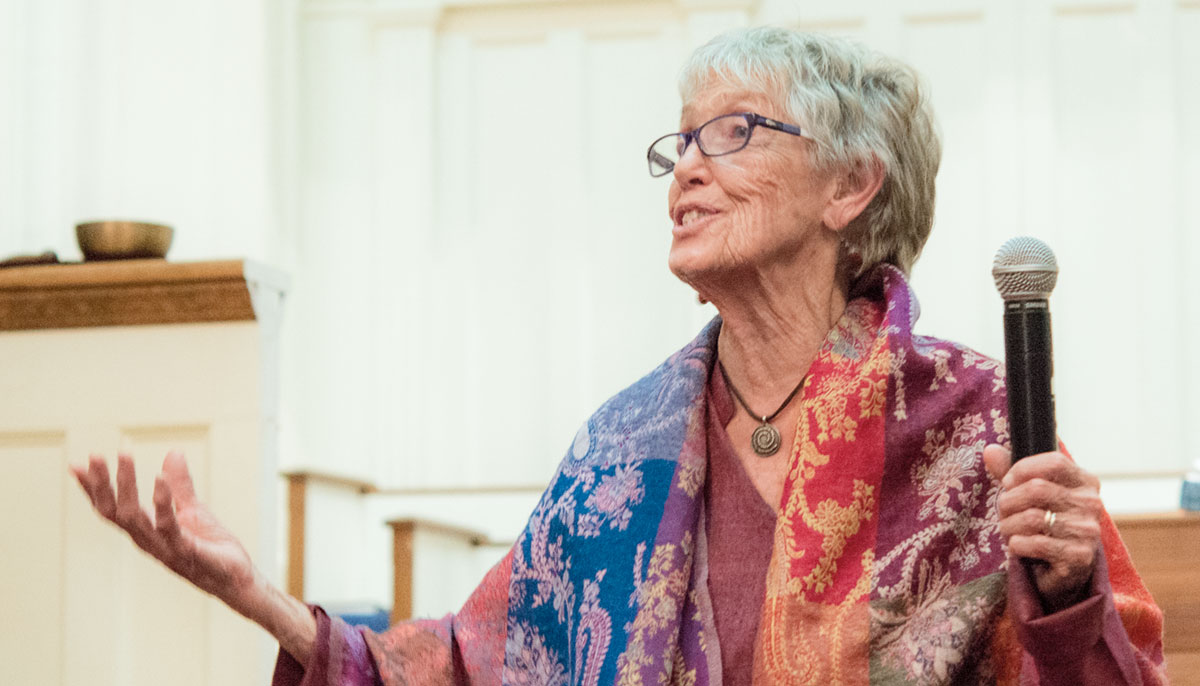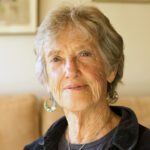Carl Jung once said that at the core of each life’s journey is one question that we are born to pursue. For me, that question has been How can I be fully present to my world—present enough to rejoice and be useful—when we as a species are destroying it?
This question keeps surfacing in my heart–mind and the responses keep coming. The most resounding have come through the four decades of group work. I continue to be stunned by the strength of community that springs up when people, through their anguish and their tears, open to the immensity of their caring.
While the Great Turning does take form in specific actions and achievements, it essentially lives within us as vision and commitment.
In the 1990s a name emerged for the purposeful and Earth-based solidarity we were experiencing and for the promise it carried—the Great Turning. The term soon came to signify the transition underway to a life-sustaining society—a transition as real and pervasive as the unraveling caused by the industrial growth society. While the Great Turning does take form in specific actions and achievements, it essentially lives within us as vision and commitment.
I think many of us assumed that we could achieve a life-sustaining society without the collapse of the global economy. But given the depth and breadth of destruction, breakdown now seems inevitable and may also be necessary for the emergence of a life-sustaining society. The Great Turning will be more important to us than ever, not only as a light at the end of the tunnel, but as compass and map, as well as a supply house of skills and tools for nourishing our spirit, ingenuity, and determination.
We can start right away, while we can still easily communicate and work together. What we do now in our immediate communities as well as in wider “rough weather networks,” strengthens our capacities, which will be ever more valuable as consumer society falters and fails. Everything we learn from the self-organizing nature of Gaia will serve to guide and steady us. It is our great good fortune that we are beginning to listen to Indigenous voices as they share, despite genocide and betrayal, their millennia-old Earth wisdom traditions.
This leads me to a state of utter gratitude. It is so great a privilege to be here on Earth at this time. I have had the good fortune to drink from three great streams of thought—the buddhadharma, systems thinking, and deep ecology. Each gives me another way to know Gaia and to know myself. Each helps me be less afraid of my fears. I have had the joy of helping others experience this too, of seeing them take the Work That Reconnects further, building our collective capacities and our trust in reciprocity.
Being fully present to fear, to gratitude, to all that is—this is the practice of mutual belonging. As living members of the living body of Earth, we are grounded in that kind of belonging. We will find more ways to remember, celebrate, and affirm this deep knowing: we belong to each other, we belong to Earth. Even when faced with cataclysmic changes, nothing can ever separate us from her. We are already home.
Our belonging is rooted in the living body of Earth, woven of the flows of time and relationship that form our bodies, our communities, our climate. When we turn and open our heart–mind to Earth, she is always there. This is the great reciprocity at the heart of the universe. My gratitude to all. May we experience “sheer abundance of being,” as Rilke says, and know that we truly belong here.
Adapted from the Afterword in A Wild Love for the World: Joanna Macy and the Work of Our Time, edited by Stephanie Kaza. Reprinted in arrangement with Shambhala Publications.

